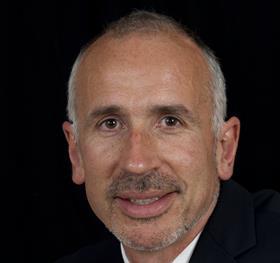
The chief executive of the British Growers Association (BGA) has outlined four themes for 2015 as part of a ‘new deal’ for the horticultural sector in the year ahead.
Jack Ward believes a greater recognition of the sector’s economic and health benefits, a better deal for growers, and an appreciation of the role of science in growing produce, are essential for the long-term success of the sector.
In addition, he is adamant that a thawing of relations with Russia would help UK growers access markets which are currently denied to them.
Outlining his hopes for the year ahead, Ward said his first theme is that greater recognition should be attached to the value and importance of high quality healthy food:“There is an increasing danger that food will be treated as a commodity to be purchased at the lowest possible price. The industry needs to do its utmost to ensure consumers place as much value on the food they buy and eat as possible.'
In his second theme, Ward called for growers to be allowed to retain a larger share of their profits in order to invest in improving the quality and variety of crops available to consumers and also to help the industry further improve its sustainability.
He said: “There are plenty of horticultural businesses that turn over large sums of money but operate on wafer thin margins. Consequently some sectors lack the security and confidence required to invest for the future. Much needs to be done over the next 12 months to redress this balance.”
The BGA chief executive’s third theme is an appreciation of the role of science in horticulture. Ward claims the industry is progressively losing access to a range of crop protection products due to changes in EU legislation and lobbying by anti-science bodies.
He said: “This is a false economy – all that happens is that UK production is exported to other parts of the world and the UK imports produce previously grown in the UK.
“While crop protection products will always require appropriate regulation and controls, to simply pull the plug is short-sighted and the UK economy suffers both in terms of job losses and investment in research.”
Ward’s final theme for 2015 is the hope that Russia will lift the ban on imports from the EU. While figures from British Growers show that the UK has not suffered as much as some other EU nations (exports to Russia in 2013 were valued at £32 million compared to Lithuania where £740 million of agri-food products were exported over the same period) lifting the ban will allow a return to more normal trading patterns.
Mr Ward concluded: “Our members play a vital role in feeding our nation. With increasing global challenges such as changing climate, political instability and threats to food security it is vital that the value of the sector is recognised and that barriers to its growth and prosperity are removed. Hopefully 2015 will be the year when we make progress on these issues.”



